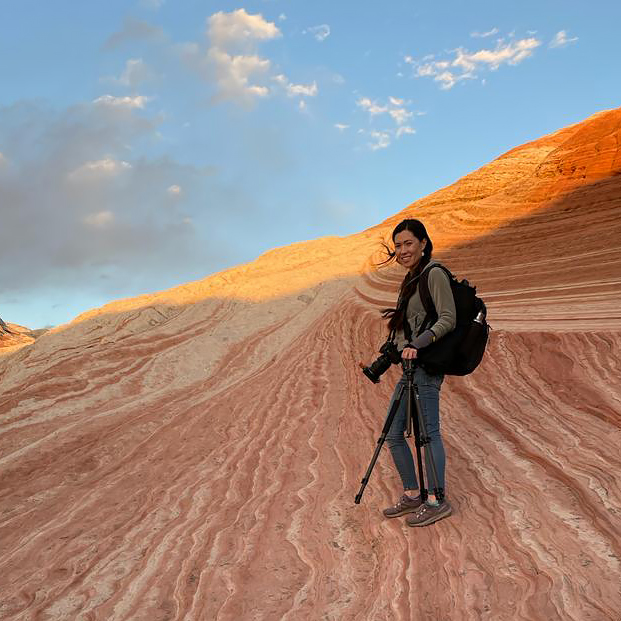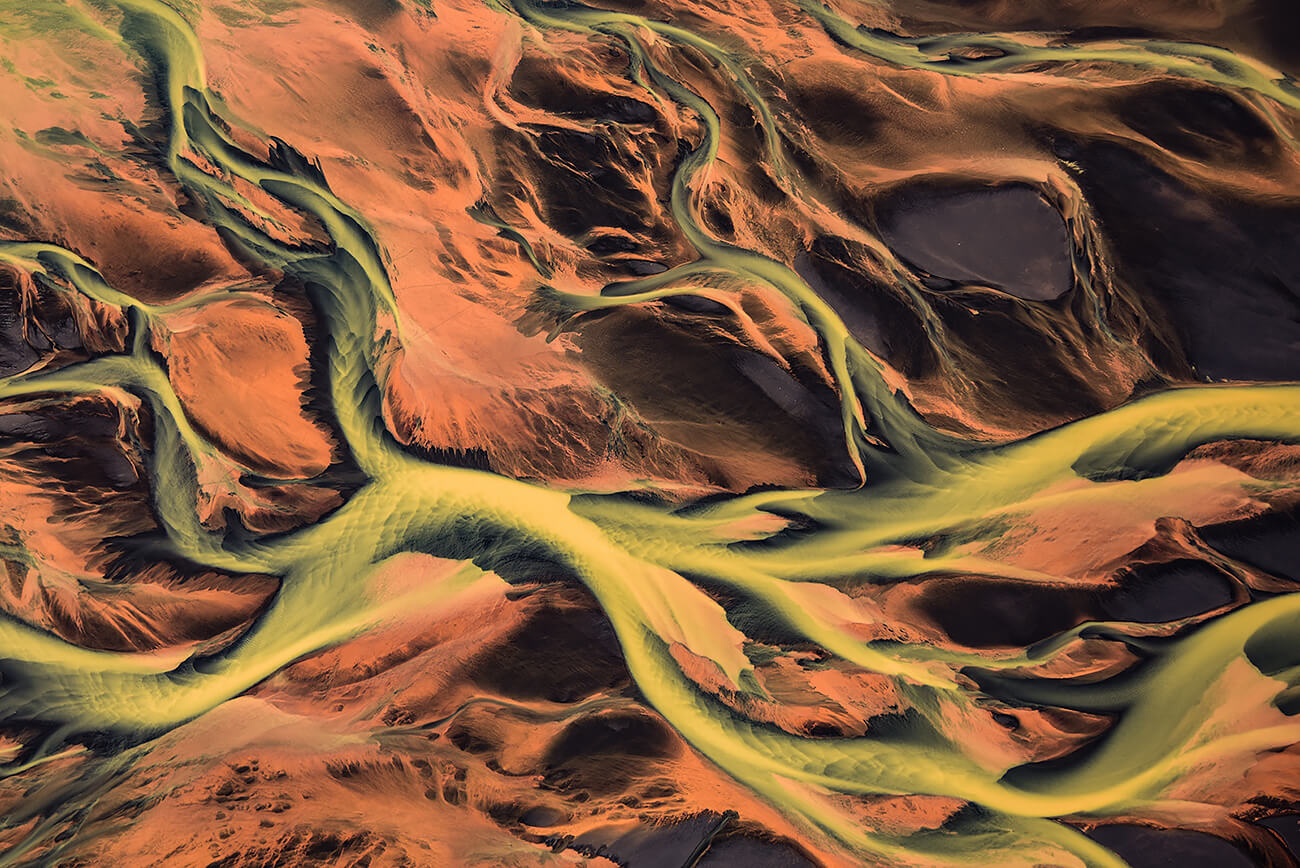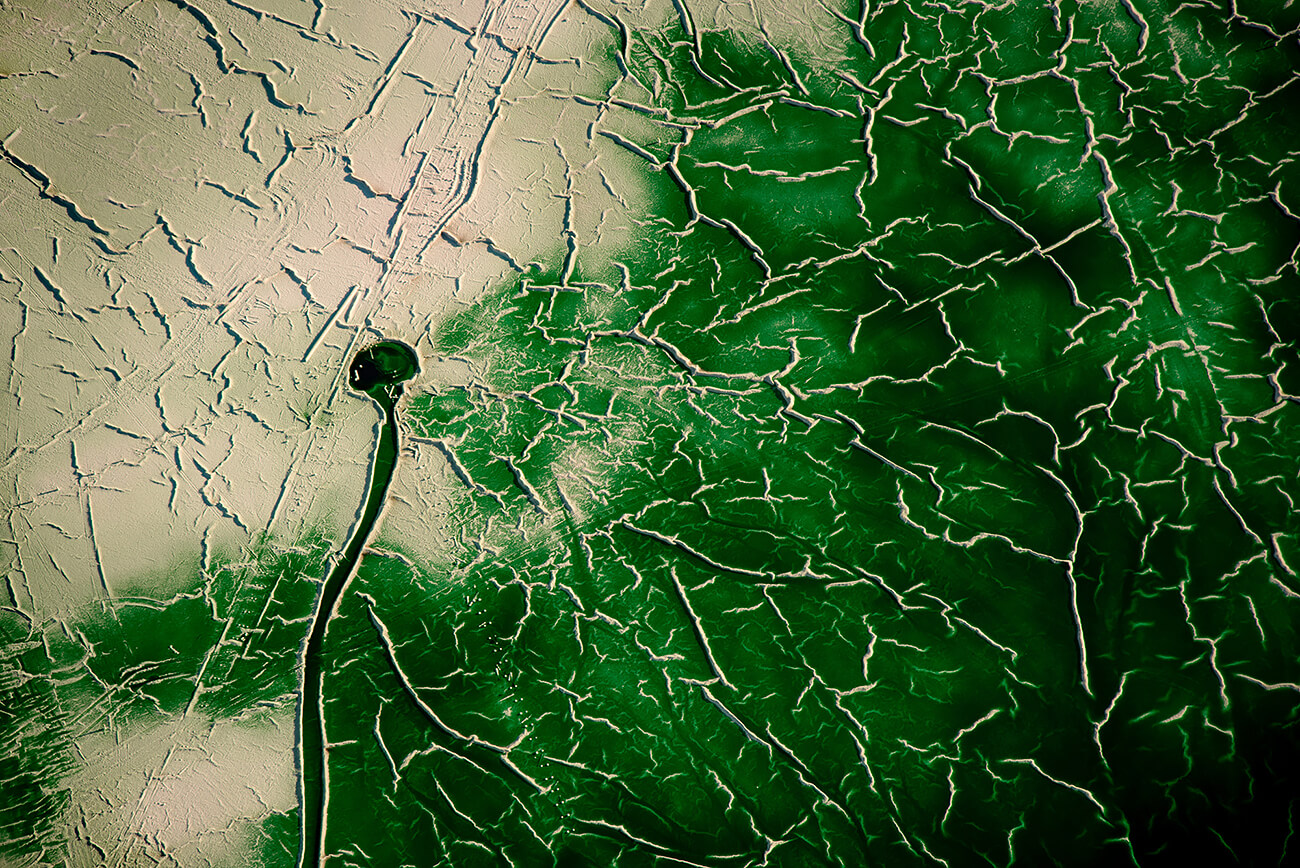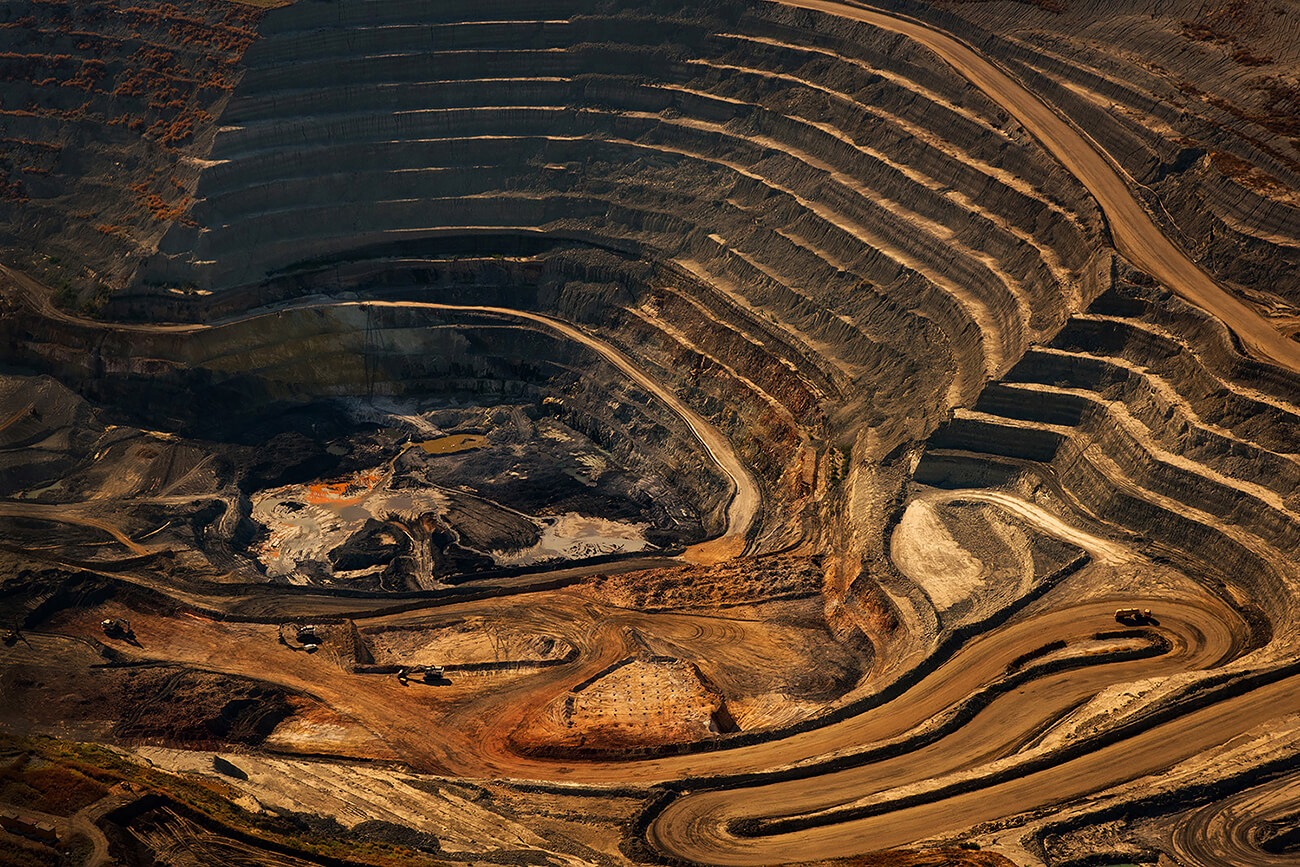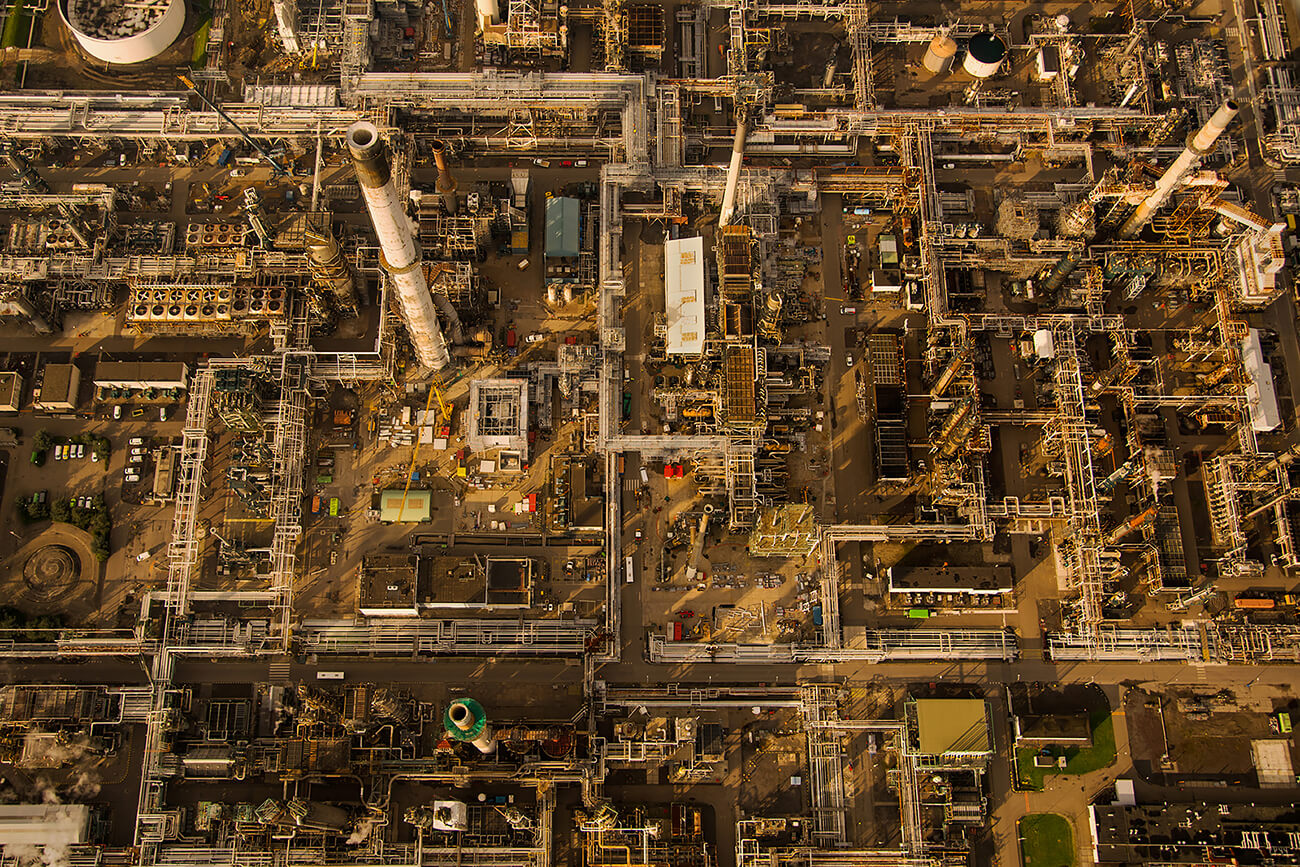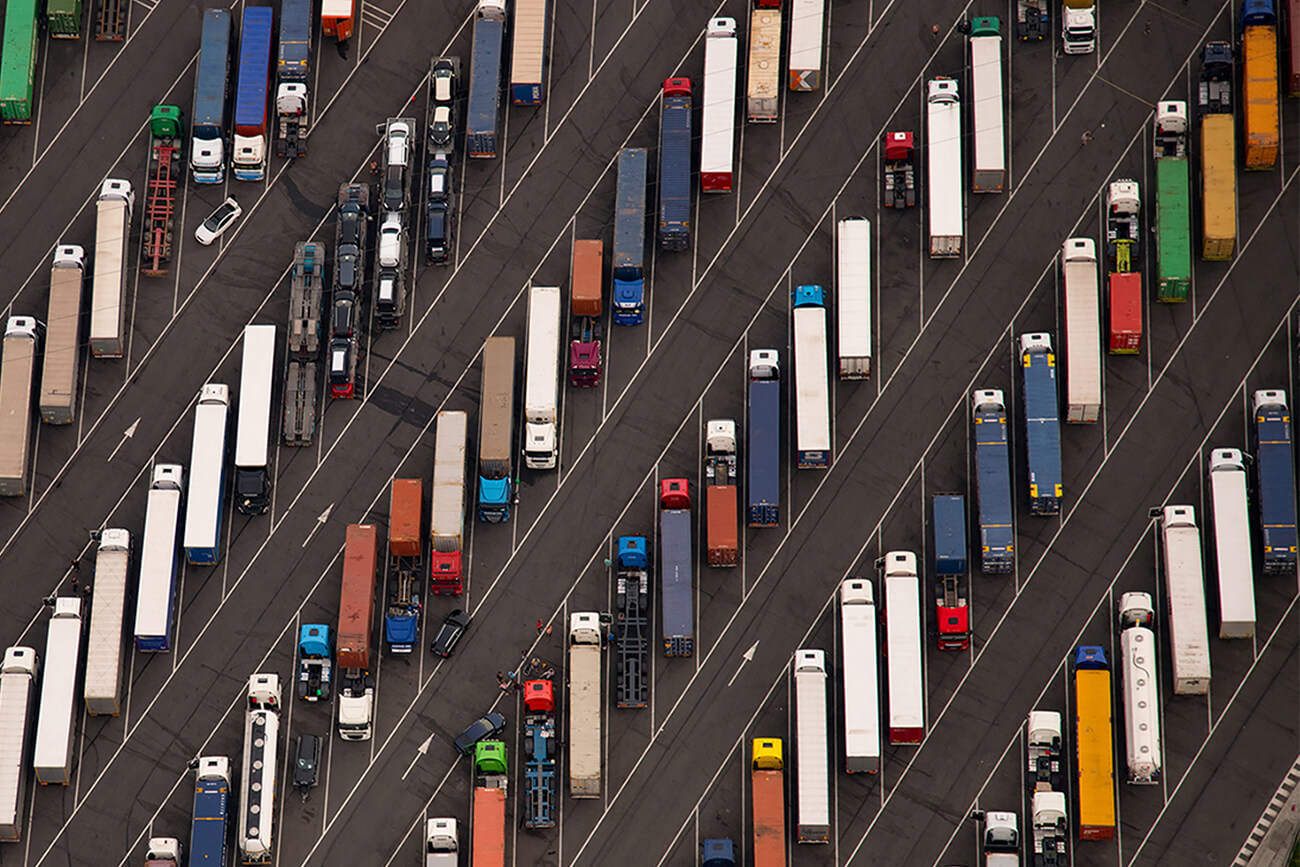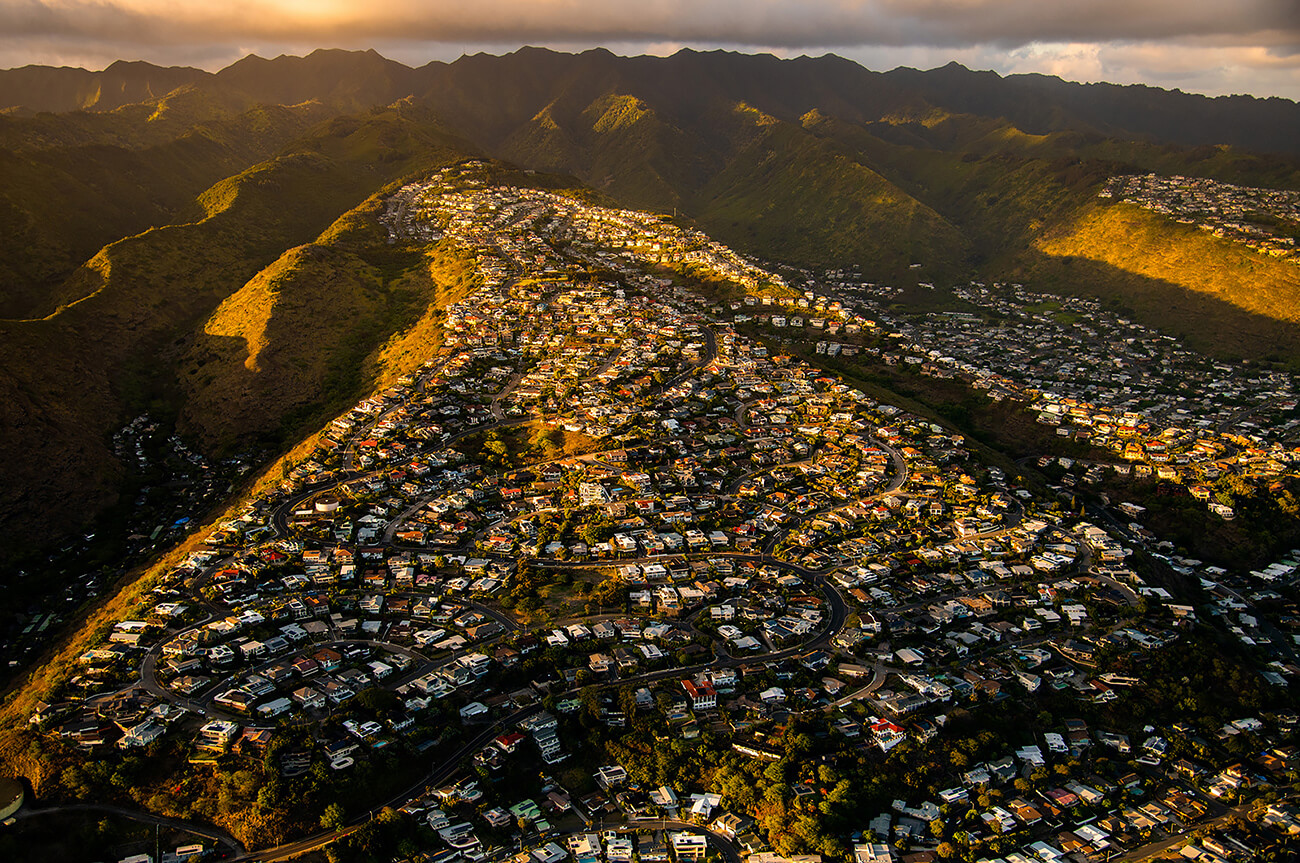Aya Okawa is an award-winning aerial and environmental photographer and visual anthropologist who enjoys shooting landscape transformation, abstract patterns, and documenting the interaction of natural and human systems. Her work often focuses on themes of interdependence, systemic patterns and cycles.
Aya's photographs have been printed in the National Geographic Magazine, the National Geographic book, 'Spectacle,' Natur, Open Skies Magazine, The Washington Post, The Daily Mail, The Guardian and National Geographic Traveller Magazine. In 2017 Aya was the Grand Prize winner of The Weather Channel, 'It's Amazing Out There' Photo Contest, and her photos have won recognition at the International Photo Awards, Photo District News, Tokyo International Foto Awards, The Big Picture and the California Academy of Sciences and Smithsonian Magazine.
Aya is passionate about exploring the natural world and protecting ecosystems and wild lands.
Her project
The Systems That Shape Us won the February 2022 Solo Exhibition. We asked her a few questions about her life and her work.
All about Photo: Tell us about your first introduction to photography. What drew you into this world?
Aya Okawa: I learned photography primarily through experimentation. It was a gradual process. When I was younger I shot film, but the cost of film and darkroom printing at the time made it difficult for me to really experiment heavily in learning photography. So it wasn't until digital became more accessible that I was able to shoot more extensively and come through trial and error to really integrate the practice of photography into muscle memory, and to work with photo as a form of expression. Online tutorials helped me to learn and troubleshoot various techniques and questions that came up along the way as I experimented to make the type of shots I sought.
While photography was initially a way to capture memories and document research findings, over time it has become so many things to me. It is an outlet, a way to study and be curious about the world, a way to connect with the beauty and fascination I find in our surroundings - and has become a big part of my daily life.
What do you wish to communicate to viewers through your photography?
Photography has the potential to transform our perceptions of the world around us and our experiences of it. In each image, I try to capture scenes and moments that we might not otherwise experience or reflect on in our daily lives, or that offer perspectives of the larger ecosystems, natural and human-shaped, of which we as individuals are only small parts.
I would like for my photos to communicate a sense of curiosity to viewers - to pique their interests in the image, and maybe invite them to wonder, what is this? And why is it like that? I hope to inspire viewers to wonder what is going on in the images, both of natural ecosystems and human-designed systems, and to want to learn more about the processes behind them.
Where did you study photography?
As a part of academic studies I conducted years of ethnographic research on language, music and culture in the United States, Central Asia & the Middle East. Photo and video were important tools for documenting & sharing the research, and this background also helped to shape my way of seeing in photography today.
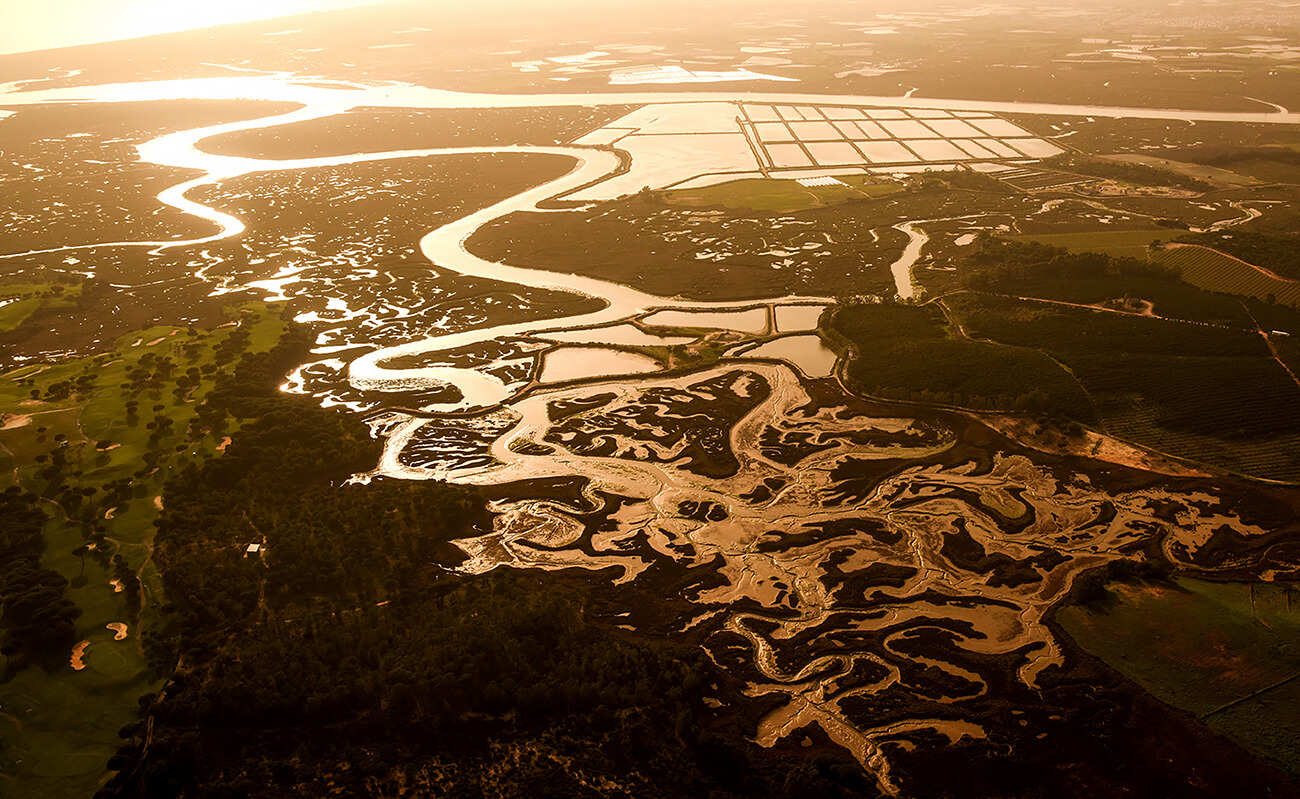
Human - Nature © Aya Okawa
I received this advice as an anthropologist but it also carries over to photography: find something you are passionate about and dive deep into it. You need passion and persistence to make great work, and that passion will make the work both be fulfilling to you and stand out. I find it is an ongoing and evolving process to discover what I am most passionate about at any time - and I strive to connect with that.
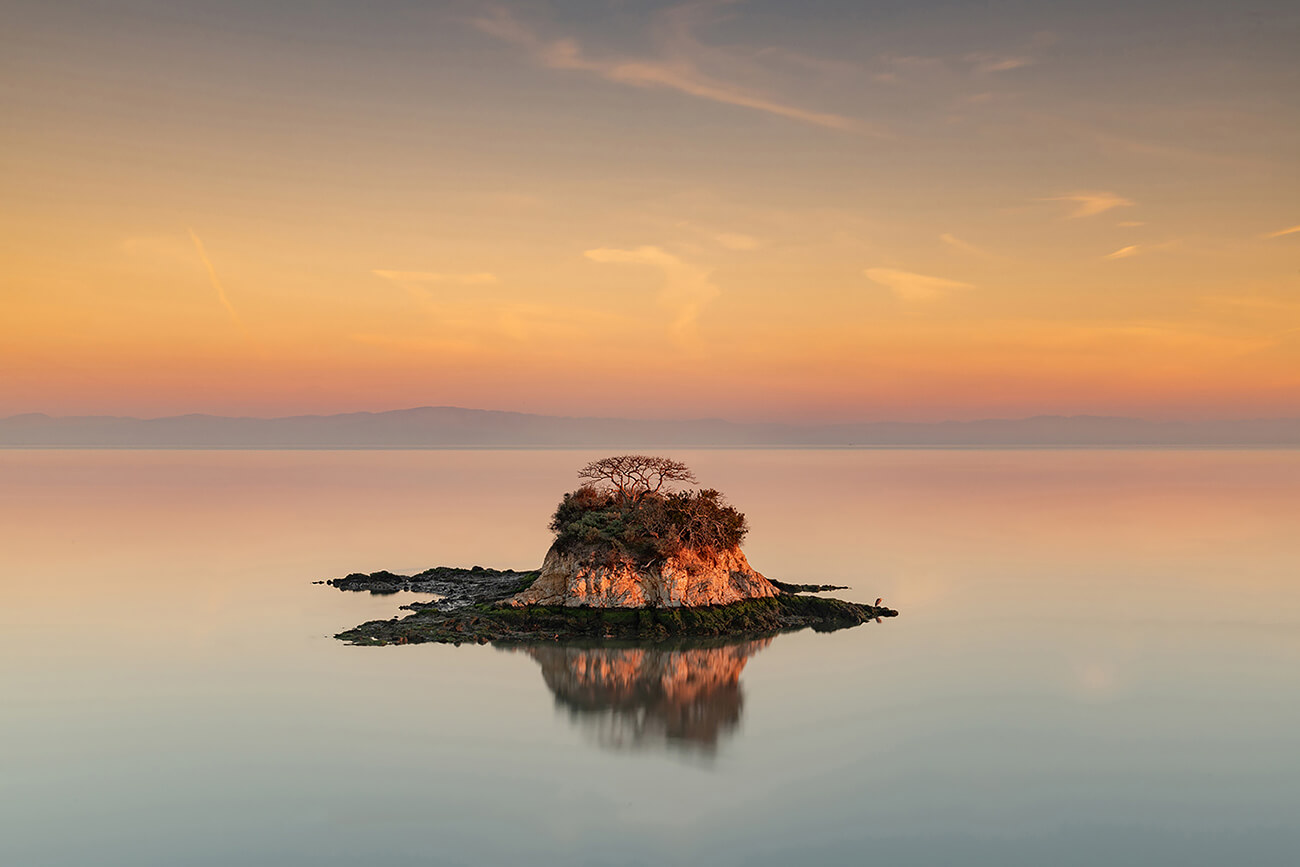
Lonely Island Sunrise © Aya Okawa
Natural ecosystems and wild lands embody such tremendous beauty and power - not to mention that we are literally dependent on healthy ecosystems for the water we drink, the food we eat and the air we breathe.
The precarious balance of our planet is increasingly impossible to ignore. From widespread chemical and plastic pollution to extreme weather, forced migration and biodiversity loss, the impacts are more and more apparent on a daily basis.
As a photographer, I am interested in documenting the broad state of our global communities and ecosystems, which are deeply interdependent and interconnected, and I aim to create work that helps to increase visceral, visual recognition of the systems that have created the current global conditions.
Do you think that photography can help raise awareness about Climate Change?
Yes. Photography has the potential to help us see and comprehend cause and effect cycles in a more tangible way. In context, imagery can also help get past the webs of smokescreens and gaslighting that can obscure clear understanding. The visual image has almost immediate impact. It can powerfully resonate and stick in our minds, and can transcend language.
I love aerial photography because it allows me to witness and capture adjacencies, juxtapositions, connections and relationships in an unfettered way that we can often miss from the ground. From above, you also see the massive and sometimes terrifying scale of human interventions, which are a reminder of the very fragile balances in which we can survive.
The economic and social systems that led to the present moment were created by series of human decisions - and as such, can also be re-envisioned or transformed by changes in human decisions. I would like my photos to invite people to pause and reflect on the interconnected systems that shape our lives - and to consider how things might be done differently.
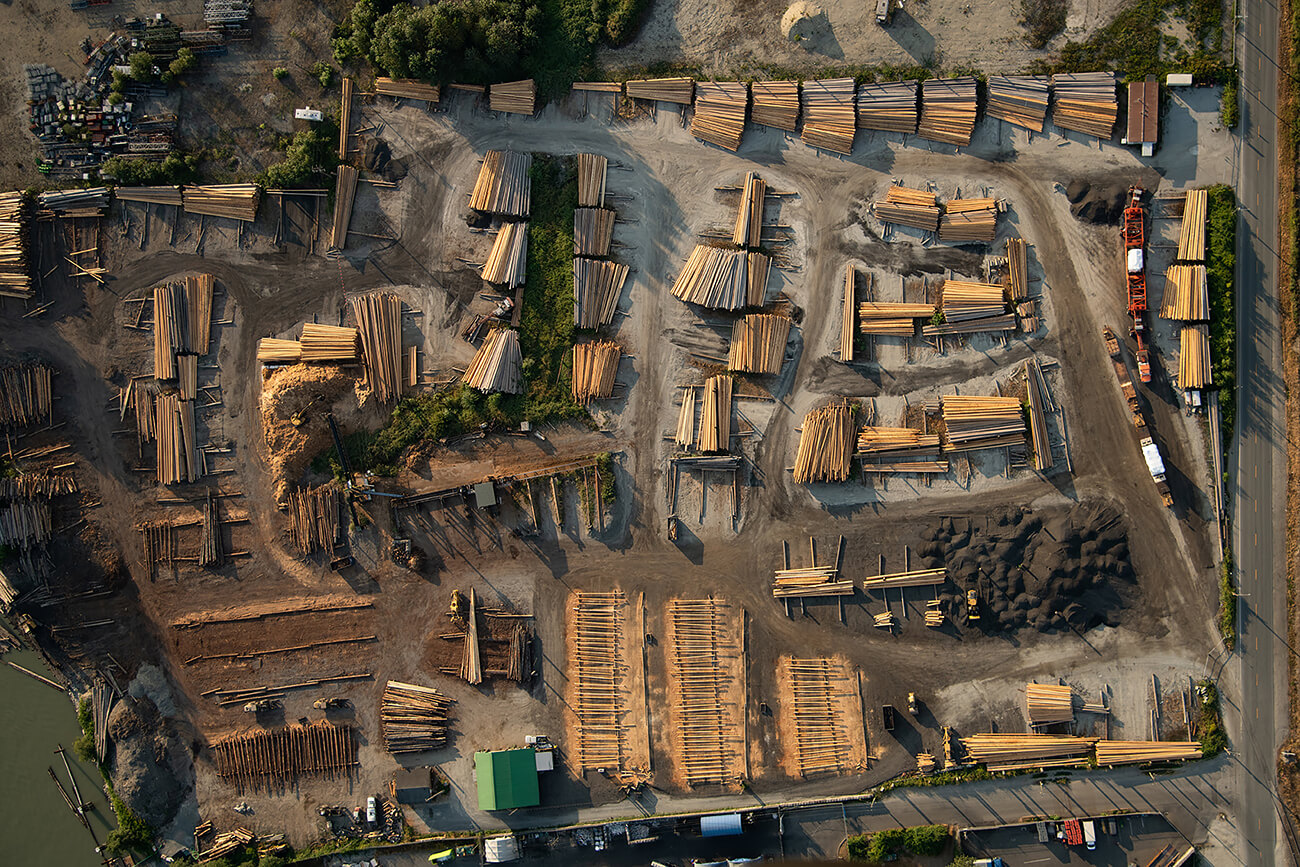
The Value of Trees © Aya Okawa
Yes. We all have unique stories and perspectives that have value to share with the world. Diversifying the narratives and perspectives that document and study our world is important in counteracting long histories of embedded power dynamics.
What equipment do you use?
I shoot with a Nikon D850 and use Nisi filters. I also use an older heavy duty Sirui tripod which is bulky but I love it.
Do you spend a lot of time editing your work?
I like to study the images, to really dive into them and explore the details in depth. Especially with aerial images, there are many details to discover when zooming in later that I may not have noticed during the shoot when things are moving so fast. For example, I took one photo from a plane in Belgium of a container truck parking lot. I loved the symmetry and bright colors of the truck containers. Later while editing, I zoomed in on a tiny detail, finding a small circle of 4 guys standing around an open truck hood looking at the engine. Nearby, a man was kicking a football, with the ball in mid air. I loved being able to witness these quotidian moments days or months later, even after having made the shot from a moving plane. But I only discover those details later during the edit process.
I also spend a lot of time looking at the shots and trying to understand what is happening in the scene - learning about geomorphological patterns, the infrastructure and systems behind particular trends in urban and industrial design. This is an important part of my learning process.
What advice would you give someone who would like to become a photographer today?
Make lots of photos, make even more photos when you feel frustrated, play around and experiment until you make things that inspire your heart.
What mistake should a young photographer avoid?
Don't get caught in too much concern about gear early on. The gear fixation can be a never ending tunnel to go down. Find the essential equipment you like, learn it well, and take it everywhere with you as you explore your surroundings and follow what deeply piques your curiosity.
Your worst souvenir as a photographer?
Well - this one was one of the best and ‘worst' at the same time. I was out at a cemetery photographing murmurations of starlings. It was my first time witnessing these incredible formations of tens of thousands of birds flying at high speed as they gather warmth and protection in numbers before roosting for the night. I quickly learned that it is a good idea to wear a hood or hat when shooting that quantity of birds. The photos were worth it though.
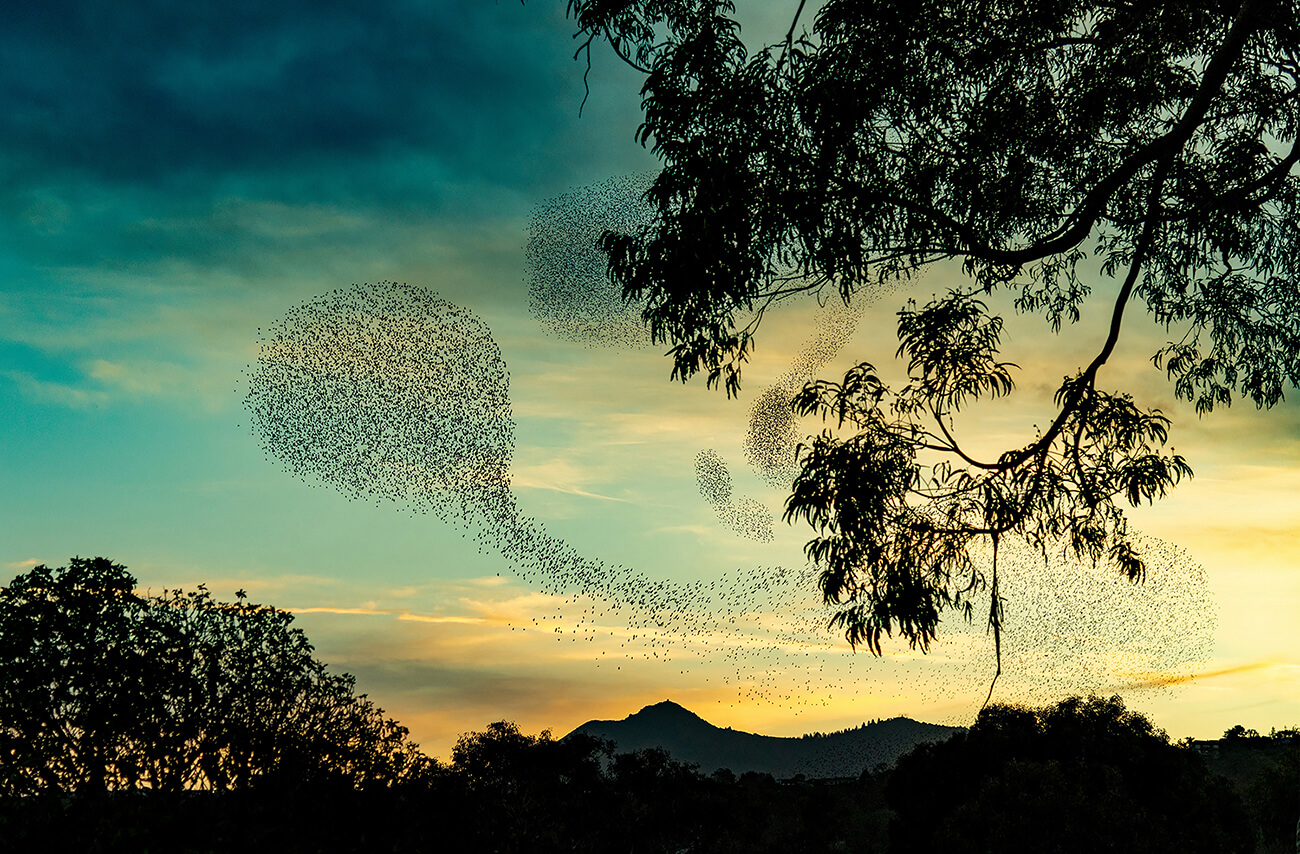
Sunset Murmuration © Aya Okawa
Too many to name, but here are just a few. Richard Misrach's work in Louisiana has inspired me and Sebastiao Salgado's work is stunning. Dorothea Lange's work on the internment of Japanese Americans during WWII made an impression on me at a young age when I was first learning about my family's history. Seeing the images of children with tags on their coats when being transferred to the camps in California made me understand the reality of that event, in comparison the more remote abstractions I had from learning history in school. I also love the work of modern National Geographic photographers Babak Tafreshi, Evgenia Arbugaeva, Reuben Wu, Pete McBride and many more.
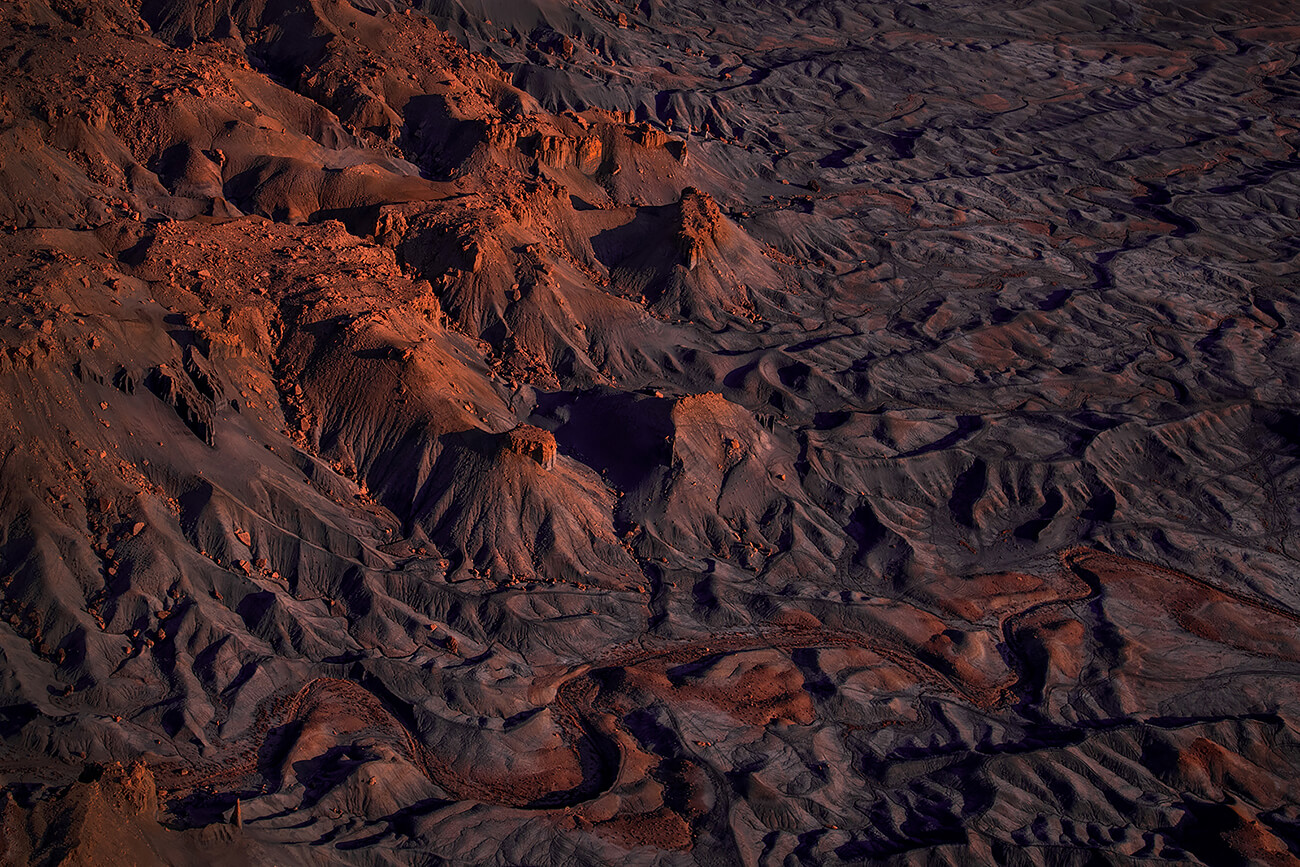
Desert Erosion © Aya Okawa
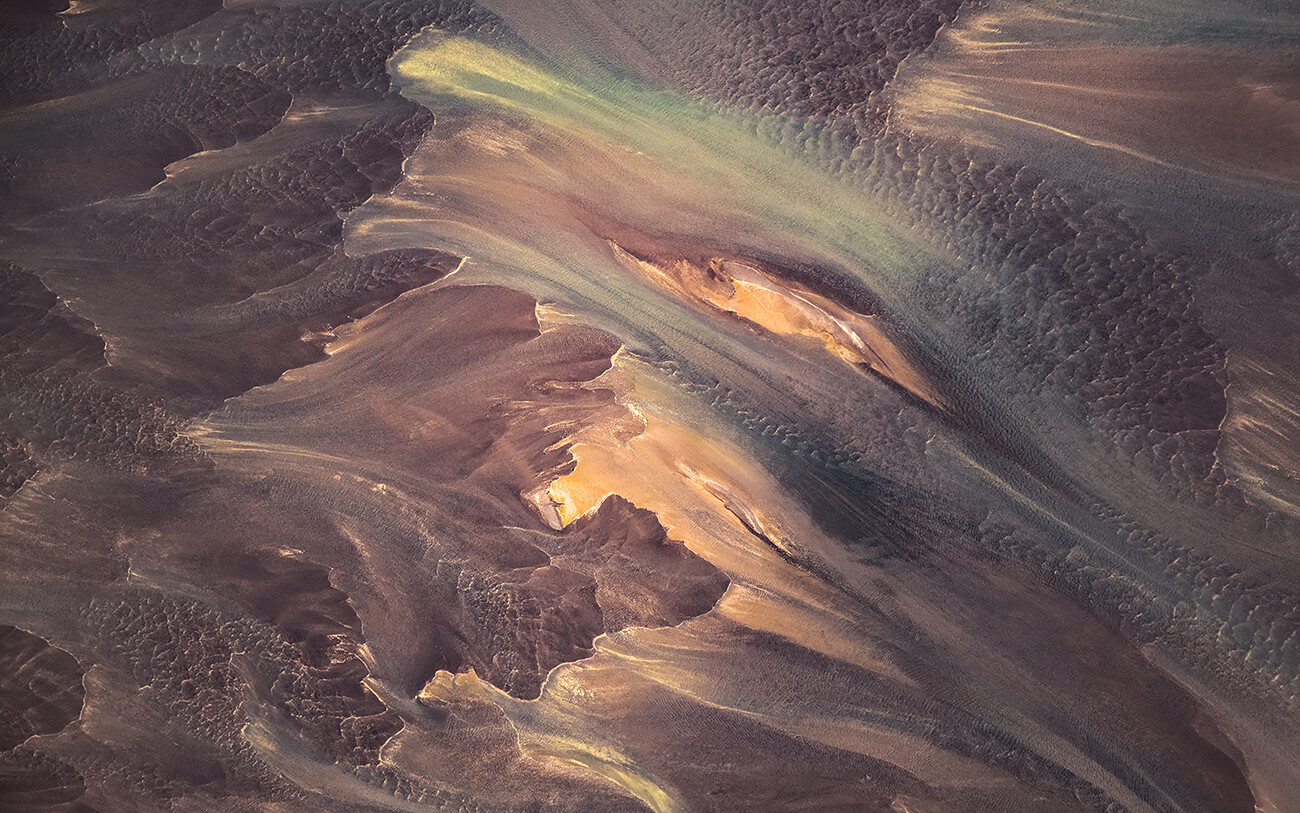
Abstract Water © Aya Okawa
Curious, connection, pattern
If you weren't a Photographer, what would you be doing?
Maybe a mystery novelist.
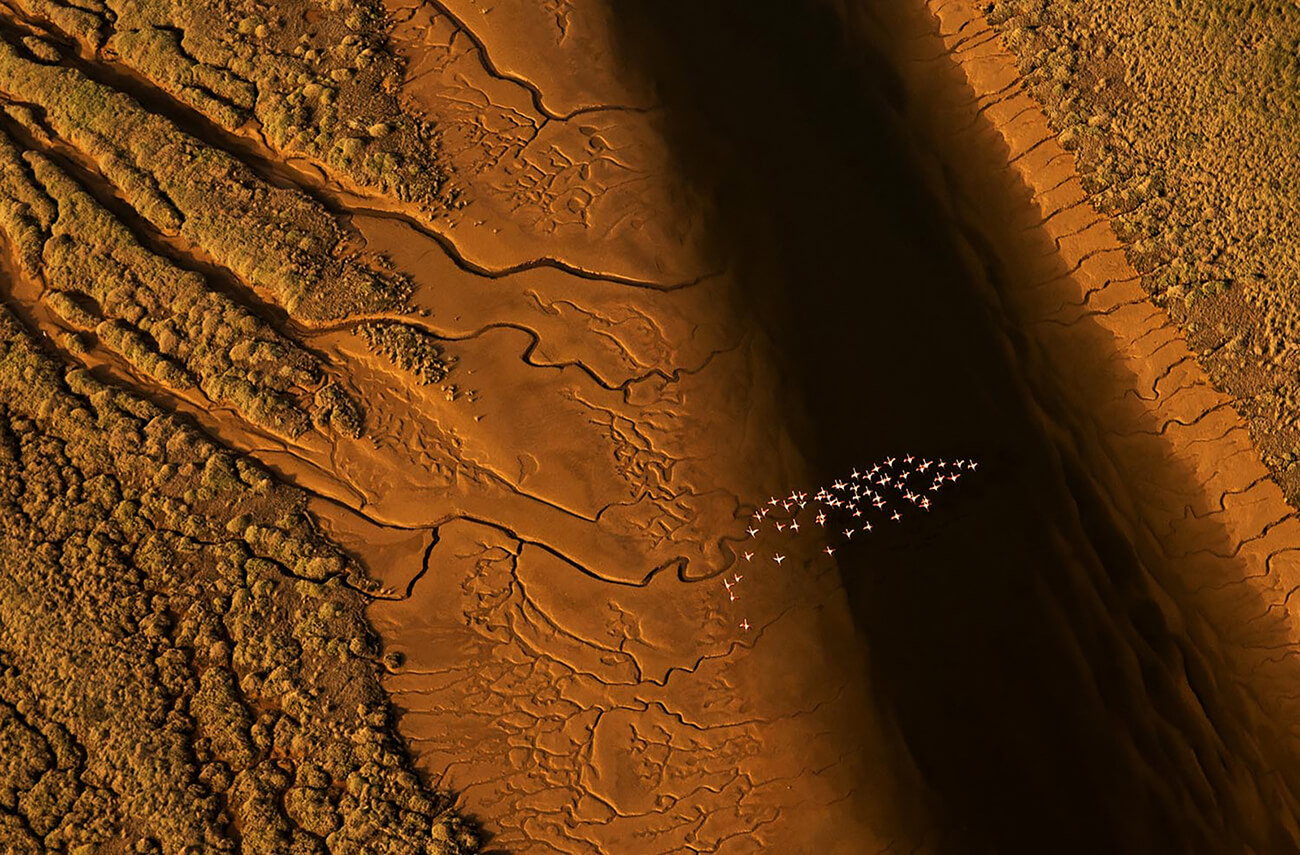
Flamingo Marshland © Aya Okawa
